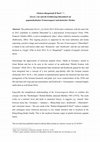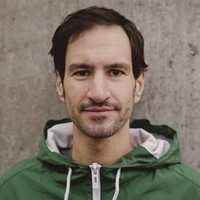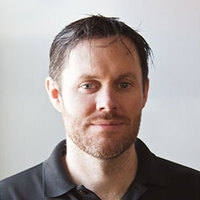Drafts by Timor Kaul

Abstract: The publication Electri_city (Esch 2014/ 2016) and a conference with the same title in ... more Abstract: The publication Electri_city (Esch 2014/ 2016) and a conference with the same title in 2015 contribute to establish Düsseldorf as a pop-musical Erinnerungsort (Nora 1990, François/ Schulze 2005), a real or metaphorical ‘place’ where collective memories crystallize (Halbwachs, 2003). This process is supported by the local authorities and media expecting a positive image and economical synergies. The new Erinnerungsort >Düsseldorf< is linked to the well known older ones >Krautrock< and >Kraftwerk< and the city had been declared as “origin” (Flür in Esch 2014: 9) or “Hauptstadt” (capital) of popular electronic music.
Interestingly the appreciation of electronic popular music >Made in Germany< started in Great Britain and has to be seen in the context of an ambivalent “British fixation with Germany” (Witts 2011). The international fame krautrock and Kraftwerk gained by this, had been integrated into a concept of a new patriotic pop-identity after the German reunion (Schneider 2015: 86 ff..). This cultural re-nationalization ignores the historical fact that most protagonists of the German krautrock and punk/new wave counterculture of the 1970s and 80s had been left wing and anti-nationalistic and Kraftwerk’s >Germanness< remained highly ambivalent as well (Albiez/ Lindvig 2011, Cunningham 2011, Kaul 2016).
Especially the metaphorical understanding of the Erinnerungsorte allows to combine this concept with the “Mythologies” Roland Barthes analysed (Barthes 1992 [1957]). The myth works on a semiotic level and tends to naturalize history- it suggests e.g. ’natural’ links between words like >Germany<, >industry<, >Rhine-Ruhr area<, Kraftwerk<, >Düsseldorf< and >electronic music<. The new myth of the “Elektro-Hauptstadt D´Dorf” reduces complex and contingent music historical processes to one simple narrative that is localized at the Kling-Klang-Studio finally: This is the mythical German origin of global electronic popular music.
Electronic Body Music (EBM) contributed to bridge the gap between the genres industrial and techn... more Electronic Body Music (EBM) contributed to bridge the gap between the genres industrial and techno. But it also is an important Übergangsgenre, a genre in transition and a transitional genre in terms of line-up, use of electronic instruments, further production methods and aesthetical and related political ideologies.
Book Reviews by Timor Kaul
Von popmusikalischen Klängen, historischen Narrativen und problematischer Identitätssuche. Rezension zu »Soundtracking Germany« von Timor Kaul
POP-ZEITSCHRIFT, 2019
Papers by Timor Kaul
Lebenswelt House/ Techno: DJs und ihre Musik is the dissertation project of Timor Kaul, Cologne. ... more Lebenswelt House/ Techno: DJs und ihre Musik is the dissertation project of Timor Kaul, Cologne. The aim of this music-ethnographic project is to reconstruct the "Lebenswelt" related to the genres house and techno with the help of qualitative interviews with DJs.








Uploads
Drafts by Timor Kaul
Interestingly the appreciation of electronic popular music >Made in Germany< started in Great Britain and has to be seen in the context of an ambivalent “British fixation with Germany” (Witts 2011). The international fame krautrock and Kraftwerk gained by this, had been integrated into a concept of a new patriotic pop-identity after the German reunion (Schneider 2015: 86 ff..). This cultural re-nationalization ignores the historical fact that most protagonists of the German krautrock and punk/new wave counterculture of the 1970s and 80s had been left wing and anti-nationalistic and Kraftwerk’s >Germanness< remained highly ambivalent as well (Albiez/ Lindvig 2011, Cunningham 2011, Kaul 2016).
Especially the metaphorical understanding of the Erinnerungsorte allows to combine this concept with the “Mythologies” Roland Barthes analysed (Barthes 1992 [1957]). The myth works on a semiotic level and tends to naturalize history- it suggests e.g. ’natural’ links between words like >Germany<, >industry<, >Rhine-Ruhr area<, Kraftwerk<, >Düsseldorf< and >electronic music<. The new myth of the “Elektro-Hauptstadt D´Dorf” reduces complex and contingent music historical processes to one simple narrative that is localized at the Kling-Klang-Studio finally: This is the mythical German origin of global electronic popular music.
Book Reviews by Timor Kaul
Papers by Timor Kaul
Interestingly the appreciation of electronic popular music >Made in Germany< started in Great Britain and has to be seen in the context of an ambivalent “British fixation with Germany” (Witts 2011). The international fame krautrock and Kraftwerk gained by this, had been integrated into a concept of a new patriotic pop-identity after the German reunion (Schneider 2015: 86 ff..). This cultural re-nationalization ignores the historical fact that most protagonists of the German krautrock and punk/new wave counterculture of the 1970s and 80s had been left wing and anti-nationalistic and Kraftwerk’s >Germanness< remained highly ambivalent as well (Albiez/ Lindvig 2011, Cunningham 2011, Kaul 2016).
Especially the metaphorical understanding of the Erinnerungsorte allows to combine this concept with the “Mythologies” Roland Barthes analysed (Barthes 1992 [1957]). The myth works on a semiotic level and tends to naturalize history- it suggests e.g. ’natural’ links between words like >Germany<, >industry<, >Rhine-Ruhr area<, Kraftwerk<, >Düsseldorf< and >electronic music<. The new myth of the “Elektro-Hauptstadt D´Dorf” reduces complex and contingent music historical processes to one simple narrative that is localized at the Kling-Klang-Studio finally: This is the mythical German origin of global electronic popular music.